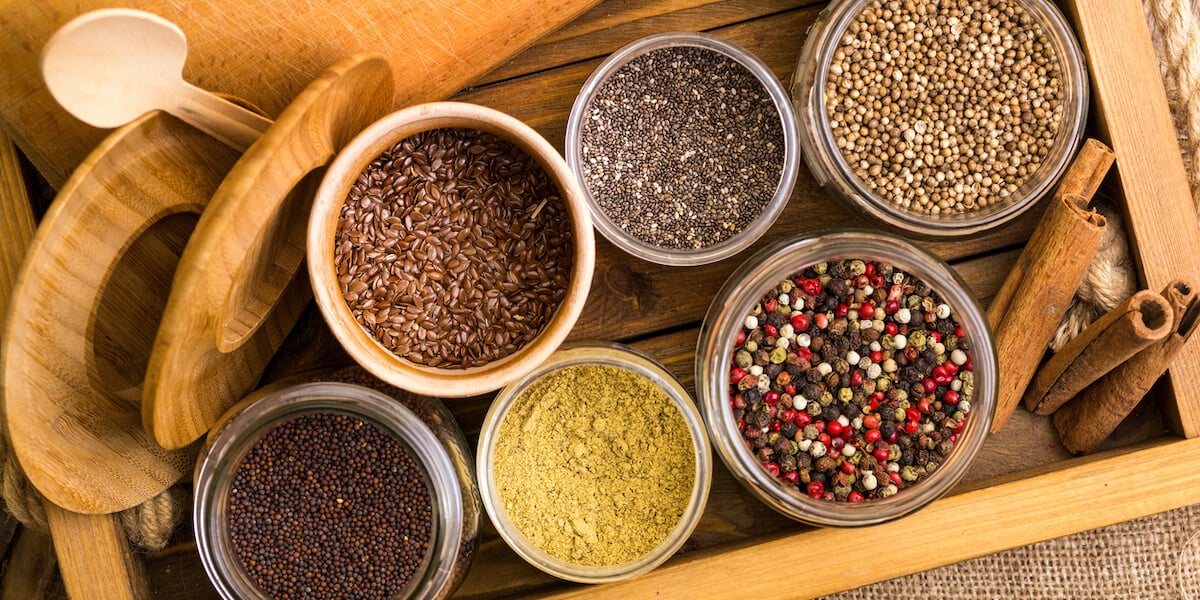Free Delivery, Anywhere In The UK Mainland!
How to Store Spices for Maximum Freshness

Spices are the heart and soul of cooking. They bring depth, aroma, and personality to every dish. But even the highest-quality spices will lose their magic if they’re stored carelessly. Over time, they can fade in flavor, lose their vibrant color, and even develop a stale or dusty aroma. The good news? With the right storage techniques, you can keep your spices fresh, aromatic, and full of flavor for months — and sometimes even years.
If you’ve ever opened a jar of paprika only to find it smells like nothing, you’ve experienced the slow, invisible decline of neglected spices. Understanding how and why spices lose their potency is the first step in learning how to preserve them for as long as possible.
Why Spices Lose Their Flavor
Spices contain essential oils that are responsible for their distinct aroma and taste. These oils are delicate and sensitive to light, heat, air, and moisture. When exposed to any of these elements for too long, the oils evaporate or degrade, leaving behind a dull, lifeless powder or seed. Whole spices generally keep longer than ground spices because the oils are locked inside until you crush or grind them.
The Enemies of Fresh Spices
- Light – Direct sunlight can bleach the natural pigments in spices and break down their flavor compounds.
- Heat – High temperatures speed up the breakdown of essential oils.
- Air – Oxygen exposure causes oxidation, which makes spices lose their aroma.
- Moisture – Humidity can lead to clumping, mold, and even spoilage in some spices.
Knowing these threats will help you avoid the most common storage mistakes.
Best Storage Practices
1. Use Airtight Containers
Store your spices in tightly sealed glass jars or tins. This prevents air and moisture from getting in. If you buy spices in flimsy plastic bags, transfer them into better containers as soon as you get home.
2. Keep Them in a Cool, Dark Place
The ideal storage location is away from direct sunlight and heat sources. A closed cupboard or pantry shelf works perfectly. Avoid storing spices above your stove, as the heat and steam will shorten their lifespan.
3. Avoid Moisture at All Costs
Never shake a spice jar directly over a steaming pot — the rising steam can introduce moisture into the container, causing clumping and mold growth. Instead, measure the spice into a spoon first.
4. Label and Date Your Spices
When you buy or open a spice, write the date on the jar. Ground spices generally last 1–2 years, while whole spices can last up to 4 years. Having a date helps you keep track and know when it’s time to refresh your stock.
Whole vs. Ground Spices
Whole spices — like cumin seeds, coriander seeds, or cinnamon sticks — retain their flavor much longer than pre-ground versions. For maximum freshness, buy whole spices and grind them yourself as needed. A small spice grinder or mortar and pestle is all you need for fresh, vibrant flavors.
Freezing and Refrigerating Spices
Most spices don’t need refrigeration, but for delicate items like paprika, chili powder, or sesame seeds, refrigeration can slow down the loss of flavor. If you choose to freeze spices, make sure they’re in airtight containers to prevent condensation when thawing.
Signs Your Spices Have Expired
- Faded color – Vibrant colors have dulled to pale shades.
- Weak aroma – They smell faint or like cardboard.
- Flat flavor – They no longer contribute much taste to your food.
A good test is to rub a small amount between your fingers. If the aroma is weak or nonexistent, it’s time to replace it.
Buying Spices for Freshness
The best way to ensure you’re always cooking with fresh spices is to buy them in small quantities. It might seem more economical to buy in bulk, but if you can’t use them before they lose their potency, it’s a waste. Purchase only what you’ll use within a few months to a year.
